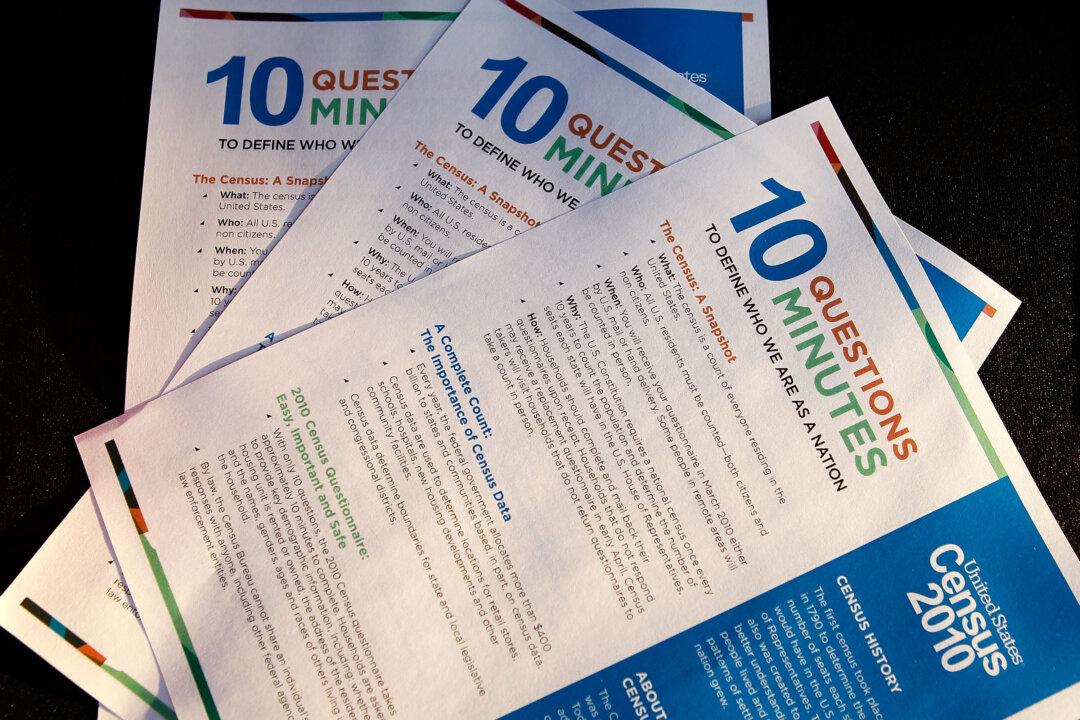WASHINGTON—Claiming new evidence contradicts the Trump administration’s rationale for wanting to ask 2020 Census respondents whether they are U.S. citizens, a left-wing open-borders group is asking the Supreme Court to delay its upcoming decision in the case.
The results from the once-a-decade census, which counts both legal and illegally present persons in the United States, are important because they are used to allocate federal dollars and determine representation in Congress.





